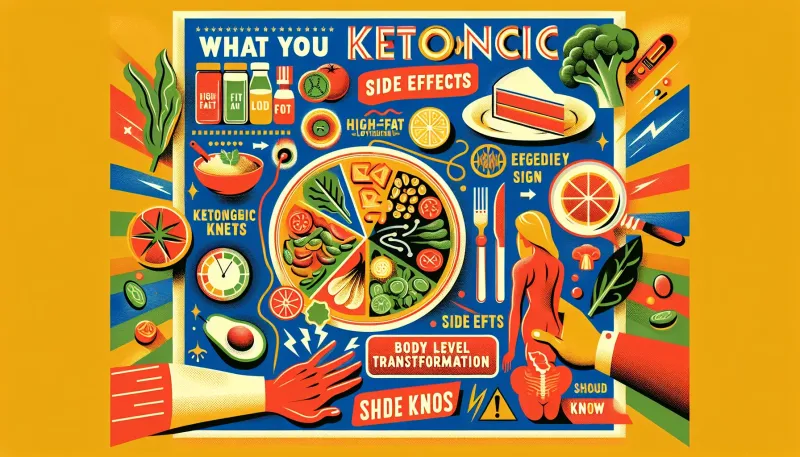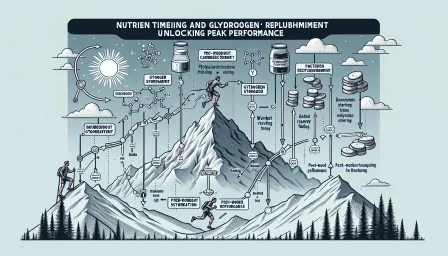The Real Ketogenic Diet Side Effects: What You Should Know

Explore the real side effects of the ketogenic diet. Understand the benefits and risks before starting. Comprehensive and well-researched insights within.
Introduction
The ketogenic diet, commonly referred to as the keto diet, has gained immense popularity for its potential benefits in weight management, mental clarity, and overall well-being. However, while many have praised its efficacy, it's important to understand the potential side effects before diving in. This article aims to provide a well-rounded, authoritative insight into the real side effects of the ketogenic diet, backed by research and expert opinions.
Understanding the Ketogenic Diet
The ketogenic diet is a high-fat, moderate-protein, and low-carbohydrate eating plan. By drastically reducing carbohydrate intake and replacing it with fat, the body enters a state called ketosis. During ketosis, the body becomes efficient at burning fat for energy, which results in the production of ketones.
Common Side Effects of the Ketogenic Diet
Keto Flu
One of the most commonly reported side effects is the "keto flu." Symptoms may include headaches, fatigue, dizziness, nausea, irritability, and difficulty sleeping. These usually appear within the first few days of starting the diet as the body adjusts to a new energy source.
Digestive Issues
Another frequent complaint is digestive discomfort, such as constipation or diarrhea. The significant change in diet can disrupt the gut microbiome, leading to temporary gastrointestinal issues.
Electrolyte Imbalance
The ketogenic diet can lead to a reduction in electrolyte levels, particularly sodium, potassium, and magnesium, which are vital for various bodily functions. Symptoms of an imbalance include muscle cramps, dizziness, and fatigue.
More Serious Side Effects
Kidney Stones
Some studies suggest that the ketogenic diet can increase the risk of kidney stones due to the elevated level of uric acid and calcium in the urine. It's crucial to stay well-hydrated and monitor your kidney function while on the diet.
Nutrient Deficiencies
Eliminating certain food groups can result in nutrient deficiencies. For instance, a lack of fruits and grains can lead to shortages in dietary fiber, vitamins, and minerals. Supplements may be necessary to maintain balanced nutrition.
Increased Risk of Heart Disease
While the keto diet is known for its benefits in improving certain cardiovascular markers, it may also increase levels of LDL cholesterol in some individuals, thereby elevating the risk of heart disease.
Who Should Avoid the Ketogenic Diet?
While many can benefit from the ketogenic diet, certain individuals should approach it with caution, including those with existing liver or kidney disease, pregnant or breastfeeding women, and individuals with certain metabolic disorders. Consulting a healthcare provider before starting the keto diet is highly recommended.
How to Minimize Side Effects
Gradual Transition
A gradual reduction in carbohydrate intake rather than an abrupt change can help minimize the onset of keto flu and digestive discomfort.
Stay Hydrated
Maintaining adequate hydration is essential for supporting kidney function and preventing kidney stones, as well as minimizing symptoms of electrolyte imbalance.
Electrolyte Supplementation
Consider electrolyte supplements or choosing foods rich in sodium, potassium, and magnesium to balance electrolyte levels.
Balanced Nutrition
Ensure a nutrient-rich diet by incorporating a variety of permissible vegetables and protein sources to avoid nutrient deficiencies. Supplements may also be beneficial.
Conclusion
While the ketogenic diet offers promising benefits for weight loss and metabolic health, it's not without potential side effects. Understanding and preparing for these side effects can make your keto journey more manageable and safer. Consulting healthcare professionals and adopting a well-researched, balanced approach can mitigate many of these risks. Always prioritize your health and well-being when considering any significant dietary changes.



























